Voices of the 2014 class alumni
■Professional Degree Program
Can I serve and help more patients?
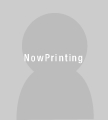
Guan Jia
Department of Pharmacoepidemiology
After being graduated from a Chinese medical college, I worked in pharmaceutical company for 4 years. Witnessed various patients struggling with severe cancer but died at last meanwhile breaking the bank, I asked myself can I serve and help more patients? Then I applied School of Public Health (SPH) in Kyoto University as a master.
Unexpectedly, here all of the courses were designed carefully and the professors directed us in different fields, as many windows, outside of which there was another world. We could design research plan according to our interests and specialty with what we learnt on epidemiology, biostatistics, health information, healthcare policy and so on. We did not focus on one patient any more, but from the viewpoint of a specific group of patients.
In the Department of Pharmacoepidemiology, every two weeks we conducted lab meeting, including journal club, discuss and share research progress. We also had interests groups, such as cost-effectiveness research, biostatistics, and modern epidemiology. Each student was guided by a tutor on the research from admission to graduation.
SPH is the start of my research life and now I am a doctoral student. Based on the abundant resource and professional teachers here, I believe I can serve and help more patients in the near future.
Opportunity to challenge myself to try out new things
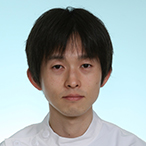
Hirotaka Kataoka
Department of Healthcare Epidemiology
After graduating from university, I was involved with respiratory medical examinations and postgraduate clinical education for six years in a municipal hospital. While I was working there, I wanted to know more about how to measure and improve the quality of medical examinations done in hospitals and therefore, I decided to join the School of Public Health in Kyoto University in 2013. As for my research task, I learnt about the predictive indicators for prognosis of patients troubled by malignant pleural mesothelioma in the field through medical examinations. There are various methods in “Clinical research” such as observational studies using large-scale RCT, big data, qualitative research for each individual patient and so on. In the school of public health, we can learn about the above methodologies and more regarding from various professors who are experts in their respective fields of study for resolving challenges that we experience while actually working in our respective fields of specialty. Another advantage that we have is that we can interact with other highly motivated colleagues who have vast experience in other fields of specialty. This gives me the opportunity to challenge myself to try out new things (meeting of students who take medical education for the first time). Please come to the open campus at least once, to experience that little extra something with regards to your daily work.
Worked for improving medication of anti-HIV drug and educating regarding prevention of HIV

Yukiko Tateyama
Public epidemiology field
While I was working in Africa for improving medication of anti-HIV drug and educating African people regarding prevention of HIV, I realized that I needed to learn more about research methods that are suitable for the issues that are present in the field and methods that are suitable evaluating and understanding these issues along with the needs of the people in the field. And to learn these methods, I joined the School of Public Health (SPH). SPH is a “melting pot of diversity” of students with high aspirations from a variety of backgrounds and experiences. I was able to learn a lot from various expert lectures thanks to professors who are experts in their respective fields of study. Group work and discussions also contributed to my learning as I was able to understand different points of view regarding an issue which is not possible by just attending lectures. I belonged to the public epidemiology laboratory and there were a lot of foreign students. Thanks to them, I was able to get a diverse view of issues related to public health from an international perspective. With the support of the professors and other members of my lab, I was able to turn my vague research idea regarding health issues into a solid research topic and then proceed with the data collection, analysis, writing and presenting of my research. I was able to practically apply what I learnt and this gave me not only a sense of accomplishment but also helped me build my confidence. The two years that I spent at SPH is very valuable to me as I was able to meet a lot of new people and learn a lot of new things. I would recommend SPH to anyone who wants to learn more about the issues regarding public health.
Immediately joined the school of public health (SPH)
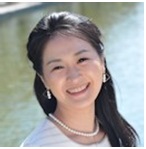
Ruka Kishida
Health information study field
I am the dentist who belongs to the department of dental anesthesia. I immediately joined the school of public health (SPH) after my initial medical training. My clinical experience was not enough and I chose to be study and work at the same time to deepen my understanding of clinical epidemiology research and my field of study. Although I was really busy, I was supported by colleagues with high aspirations who were experts in their respective fields of study. I was also able to learn about clinical epidemiology research through systematic lectures from famous professors who are playing an active part in the front lines of their respective fields of study. This made each day a very stimulating and significant while I was studying at SPH. Furthermore, I also experienced the joy and difficulties of applying whatever I learnt to my research field and one cannot get this experience just by reading textbooks and doing literature reviews. The School of Public Health in Kyoto University is an integral place where one can learn various methods of connecting what is learnt in class to actual clinical practice.
The connections and knowledge that I got from the university have become valuable assets in my life. I recommend SPH not only to health care professionals but also people who want to bring to this society sense of values with a solid foundation.
To people who have ideas but are struggling and do not know how to use them to achieve their goals.
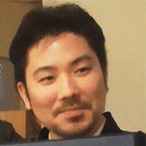
Naotsugu Iwagami
Health enhancement and praxiology field
I was at my limits. Although I handled patients earnestly as a cardiologist and a medical practitioner, the more I investigated regarding their issues, the more doubts kept piling up in my head. I couldn’t solve these issues and was betrayed by the evidence in front of me. I wanted to resolve some of these issues by myself but did not know of the methods to resolve them. And this made me knock the doors of Kyoto University. I am a blockhead who has been learning only for about a year now. So I can’t really say anything great. But I think I have learnt a lot in this one year. There is a characteristic logic on the disposition of human beings in clinical medicine. Even if you have some wonderful ideas, in order to make it accepted by the world, it is necessary to seize and claim them by using fixed methods. Although these methods are look villainous in nature, even if you learn only the minimum required, it will remarkably expand your knowledge about research. Don’t worry thinking whether you can practically apply these methods or not. But instead, I think it will greatly help in just knowing that these fundamental research methods exist and knowing that you have these as options in your toolkit. You also have access to an environment where you can consult with experts in these research methods. I don’t think you will get this kind of exposure anywhere else in Japan. And I feel one cannot learn about these methods just through self-study. At least I cannot learn these methods through self-study! I was always interested in clinical research and used to learn statistics in my spare time back when I was still an undergraduate student. However, no book taught me about the fact that it is more important to examine if there is any value in doing a research rather than just knowing complex statistical methods. I recommend SPH of Kyoto University to people who have ideas but are struggling and do not know how to use them to achieve their goals.
Age is not a limiting factor to learn something new and I took a leap of faith into the new world
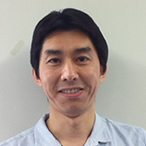
Yoshihisa Miyamoto
Pharmacoepidemiology field (MCR course)
Why the MCR course?
When I was doing self-study, I was worried whether I am studying clinical research correctly or not. Therefore, I decided to join Kyoto University, School of Public Health to study in a systematic manner.
What is special about Kyoto University?
It is first university in Japan to establish the School of Public Health which has the MCR course with a strong faculty for training clinical researchers.
When is a good time to join the program after graduating from university?
In order to form a clinical question, it is desirable to have a certain amount of clinical experience in the field, and in my class, there were students with an average of 5 years of work experience after they graduated from their respective universities. However, I joined the program, 17 years after graduating from university and was one of the older students in my class. However, personally, I think that age is not a limiting factor to learn something new and I took a leap of faith into the new world of clinical research. You learn a lot about the necessary things for conducting clinical research such as research design, literature review and evaluation, statistics, epidemiology and so on, through systematic lectures. Further, you can apply what you have learnt through systematic reviews and economic evaluations. The special feature of the MCR course is the lecture regarding Research Protocol Management. In this lecture, you can learn in depth about research protocols and get a diverse understanding through lectures from professors from various fields of study.
What is special about the pharmacoepidemiology field?
You can learn and practically implement database research which is considered to become one of the mainstreams of future clinical research based on medical statement data, DPC data, and dispense data. Moreover, there are sub committees for statistics and CER (comparison effect research). So if you are interested, you can learn about them as well. SPH of Kyoto University is an amazing environment to learn about new things as long as you are motivated and interested.
I hope many people join SPH, and become promising human resources for the greater good of the society.
This one year was a turning point in my life
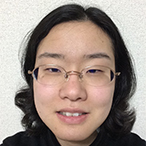
Noriko Furuita
Preventive care study field
In 2013, I entered my 10th year as an obstetrician and gynecologist after graduating from university. After getting the qualification of a medical specialist, I did not have any other future goals in my life. Then, I stumbled upon the MCR course offered by Kyoto University.
I was always interested in clinical research for quite some time and decided to apply for the MCR course. However, I realized that there were only 2 weeks left for submitting the application form! So I prepared the necessary documents in a rush and was able to join the MCR course in spring 2014. I experienced student life again after a long time and each day passed by really quickly. In the lectures, you learn about epidemiology, research design, medical-care statistics, and practical applications using statistical software. With these lectures, I was systematically able to acquire the knowledge that is mandatory for beginning clinical research. The lectures by enthusiastic professors were very stimulating. In addition to this, I was surrounded by students with various backgrounds which provided a stimulating experience as well. As for my research task, I was well guided by the professors of the preventive care study field which I specialized in. My vague research question became clear with their guidance and I was finally was able to complete my study protocol. I will be returning to the clinical field starting April, and start my research. I would like to do my best as an obstetrician and gynecologist who can also do clinical research.
Age is not a limiting factor to learn what you want as long as you have the motivation and desire to learn new things
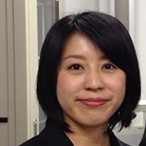
Miki Tanaka
Intellectual property business administration field
After completing my training as a dentist, I decided to join SPH because I wanted to learn about IP management in order to practically apply what I learnt regarding fundamental research in university. In SPH, I was surrounded by classmates from various backgrounds such as students who were health care professionals, students who worked in big companies and students who were recent graduates. Every day was a stimulating learning experience. When I saw the other students, most of whom were above 30 years of age, studying and working at the same time and enthusiastically attending the lectures and working on their research, I realized that age is not a limiting factor to learn what you want as long as you have the motivation and desire to learn new things. Moreover, I was able to carry out the research that I wanted to do after joining SPH, with the support and guidance of professors with excellent practical experience with regard to IP management field. However, two years are really short for a professional degree program and I feel that I still have a lot more to learn. After graduation, I want to actively employ whatever I learnt at SPH in my work. For all those who are tackling issues concerning medical care and for all those who want to resolve those issues through further study, by all means, please join SPH at Kyoto University. Let’s learn together!
■PhD Program
Explore the lack of vitality in society from an academic stand point

Etsu Goto
Medical economics field
I was working as an engineer in a software company. However, I wanted to learn more about the health issues which are afflicting the current society and enrolled as a 3rd year student of economics in Kyoto University. I came to know about medical economics when I was pursuing my master’s degree and wanted to learn more about practical research involving medical care services for the maintenance and recovery of health. And therefore, I enrolled in the PhD program after completing the professional degree program. In this program, there are wide variety lectures about epidemiology, medical-care statistics, medical-care ethics, and medical system within and outside Japan, medical care & information, communication etc. in the first year after enrollment. This program is filled with lectures, group debates, and fieldwork apart from the field of study you want to specialize in. These various systems and phenomena which are related to health or medical care, that you study in this course, will become a valuable part of your toolkit. Moreover, this program is a place where you can advance your research through guidance from professors, active discussions with your classmates and seniors, regarding your research topic, analysis methods and so on. Although being a medical faculty, there are many students from non-medical fields and you are surround by students from different backgrounds and different perspectives and you get to learn a lot from their ideas. I don’t think you can get this kind of exposure in any other university. I thankful to take my first step forward as a researcher from such a wonderful environment of Kyoto University. In Kyoto University SPH, there are various doors for finding answers related to the issues you have regarding public health and medical care. And beyond that door, top class professors, kind and strict seniors and enthusiastic classmates are waiting for you. All you have to do is knock and enter!